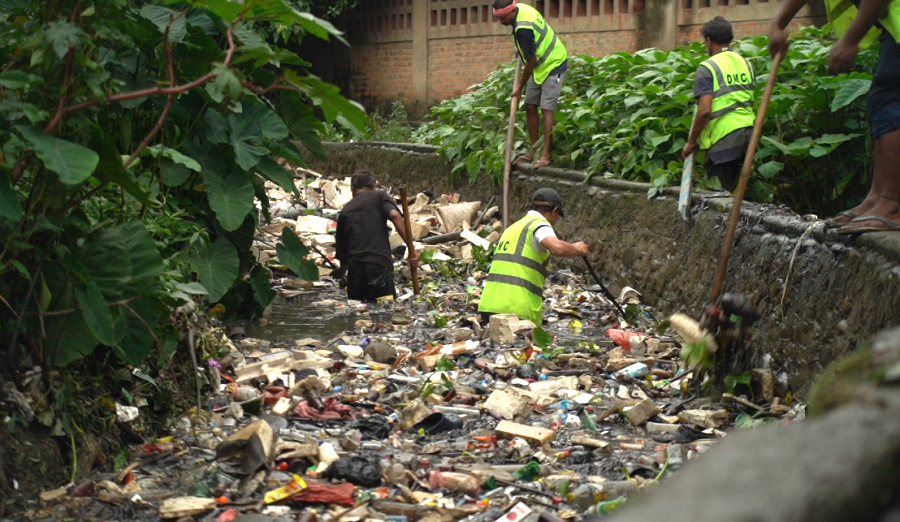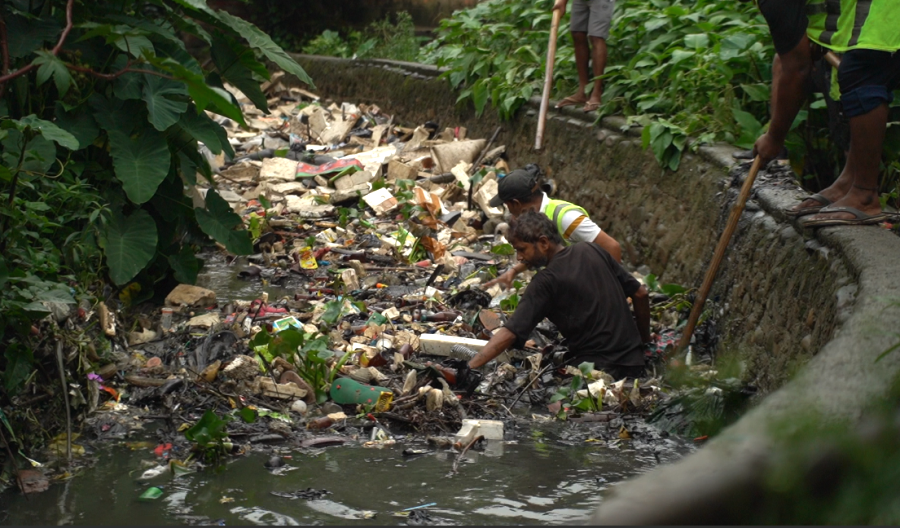A decade after Swachh Bharat’s launch, Dimapur still struggles with untreated sewage, poor drainage, and unsafe sanitation practices.
Share
DIMAPUR — Ten years since the launch of the Swachh Bharat Mission (SBM), Dimapur continues to grapple with poor sanitation and drainage management, especially visible during the monsoon season.

Despite official claims that Nagaland has made “significant progress” and achieved “remarkable milestones,” the rains reveal the persistent inadequacies in sewage management, awareness, and infrastructure in the city.
Under SBM’s calendar of thematic drives, the Mission Directorate in coordination with municipal and town councils has taken up multiple initiatives, including cleanliness drives in educational institutions, hospitals, markets, water bodies, parks, residential areas, and public offices.
However, the impact on the ground remains limited, as only a small percentage of Nagaland’s urban sewage is actually treated, and the remainder flows untreated into open drains and streams.
The issue becomes most apparent during the monsoon, when poorly constructed toilets, septic tanks, and drains get choked or overflow, becoming a breeding ground for disease and exacerbating the risks faced by poor residents, migrants, and primarily the sanitation workers who have to deal with the polluted drainage waste.
On May 23, members of the Committee on Environment and Climate Change of the Nagaland Legislative Assembly visited environmentally vulnerable sites in Dimapur and Chümoukedima.
Related story: NLA panel’s green crackdown reaches Dimapur
During the visit, councillors from the Dimapur Municipal Council (DMC), East Dimapur Town Council, and Chümoukedima Town Council jointly agreed to immediately ban the dumping of household garbage and septic waste into rivers. Resolutions to this effect are expected to be passed soon.
Convenience over protection
At the centre of this growing concern are Dimapur’s sanitation workers. Despite the hazardous nature of their work, DMC sanitation staff are frequently seen clearing clogged drains with bare hands, sometimes submerged waist-deep in sewage without any Personal Protective Equipment (PPE).
A recent video shot by Eastern Mirror showed sanitation workers submerged waist-deep in open drains, clearing debris with bare hands and no protective gear.

The footage raised renewed concern over occupational health and hygiene practices in urban sanitation.
While major blame was directed at the DMC for its alleged failure in ensuring the safety of sanitation workers, conversations with the workers revealed otherwise.
Many said they consciously avoid using PPE, citing discomfort and difficulty while working.
“In the hot and humid climate of Dimapur, it’s very difficult to work with rubber gloves and boots,” one worker said. “Our hands and feet feel uncomfortable, and we can’t grip the tools properly with gloves on. That’s why we prefer working without them,” he added.
“We have been working for many years without the PPE, and we have become comfortable working without them,” another worker said.
When asked about the health risks of working without protective gear—particularly while handling decomposed human waste—the sanitation workers claimed they have not experienced any health problems.
“Till now, we are in good health without any major concern working in the sewage. We have been carrying out this job without any health issues for many years, and so we believe it will continue,” they maintained.
A DMC staff member, speaking on condition of anonymity, said the department has faced challenges in training and creating awareness on the aspects of PPE use.
The workers who handle the city’s waste appear not to use the safety gear despite the health hazards, as they choose convenience over protection, the staff said.
While reflective jackets and gloves are made available, most workers reportedly refuse to wear them.
Aware of the public criticism directed at the DMC whenever photos or videos of sanitation workers surface, the staff member added that the department will continue awareness efforts and will keep imploring workers to understand the risks they are exposed to.